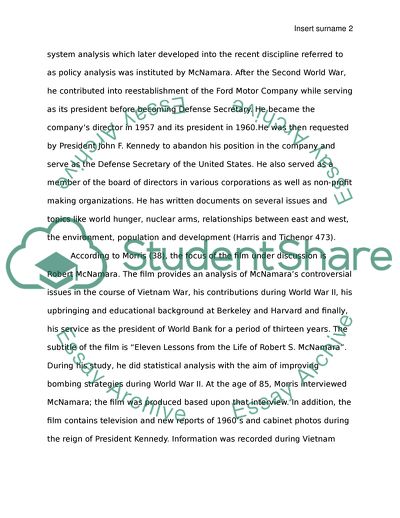Cite this document
(The Fog of War - Eleven Lessons to Be Learned from Documentary Movie Review Example | Topics and Well Written Essays - 2500 words, n.d.)
The Fog of War - Eleven Lessons to Be Learned from Documentary Movie Review Example | Topics and Well Written Essays - 2500 words. https://studentshare.org/visual-arts-film-studies/1770257-ins101p-research-paper
The Fog of War - Eleven Lessons to Be Learned from Documentary Movie Review Example | Topics and Well Written Essays - 2500 words. https://studentshare.org/visual-arts-film-studies/1770257-ins101p-research-paper
(The Fog of War - Eleven Lessons to Be Learned from Documentary Movie Review Example | Topics and Well Written Essays - 2500 Words)
The Fog of War - Eleven Lessons to Be Learned from Documentary Movie Review Example | Topics and Well Written Essays - 2500 Words. https://studentshare.org/visual-arts-film-studies/1770257-ins101p-research-paper.
The Fog of War - Eleven Lessons to Be Learned from Documentary Movie Review Example | Topics and Well Written Essays - 2500 Words. https://studentshare.org/visual-arts-film-studies/1770257-ins101p-research-paper.
“The Fog of War - Eleven Lessons to Be Learned from Documentary Movie Review Example | Topics and Well Written Essays - 2500 Words”. https://studentshare.org/visual-arts-film-studies/1770257-ins101p-research-paper.


